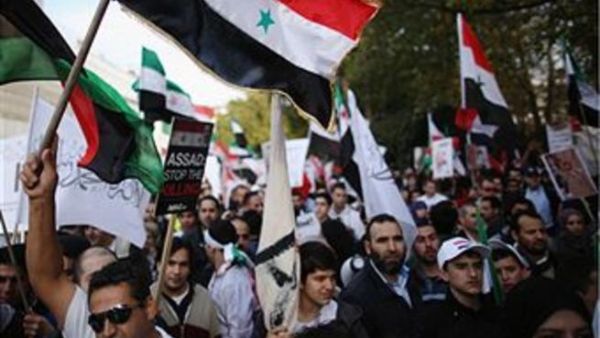Saturday’s decision to suspend Syria’s membership in the Arab League is not expected to put any additional pressure on Beirut stocks already toiling under the unrest and from the lack of government in the early months of the year. “I don’t see anything new in Syria and don’t think stocks depend on it, but if they did, it would be through other factors. The BSE is a static entity and needs to be deep and liquid for such events to have an effect,” said Dr. Louis Hobeika, professor of economics and finance at Notre Dame University in an interview with The Daily Star.
According to Hobeika, much of the weakness in the Beirut Stock Exchange is driven by domestic factors and the Special Tribunal for Lebanon. Indeed, every new trading day on the BSE appears to further consolidate the dreariness of Lebanese equities, but the government can reverse the trend, said Hobeika. “If the current government starts taking decisions, including the administrative appointments, that could be very positive for the BSE because investors now need confidence,” Hobeika explained.
The BLOM Stock Index has already lost 19.6 percent in 2011 year-to-date including 0.07 percent during the week ending Nov. 11, closing at 1,186.62 points with a flat market capitalization of $10.38 billion. The drop, however, has been gradual and lacks momentum as seen in the weak volumes, lending credence to analyst views that the decline is unwarranted and reflects more risk aversion than weak fundamentals.
Only 159,246 shares worth $1.8 million changed hands during the three-day trading week, still enough to send Solidere’s Class A and B shares down 0.7 percent and 1.4 percent to $14.2 and $14.06 respectively. On the other hand, banking stocks mostly ended the week in the green, led by Byblos Bank shares which rose 1.27 percent on a $40,000 trading value, while BLOM Bank and Bank Audi’s GDRs inched up 0.5 percent each.
According to Hobeika, cheap BSE stocks present a good buy opportunity for long-term investors, but banking stocks do not fall in that category. “In comparison to the global jewels of banking such as HSBC, Citigroup, UBS, and others, Lebanese banks are in fact overvalued,” said Hobeika.
The banking sector has been hit by crises in Egypt and Syria, but the bulk of the sector’s revenues continue to be generated by a slacking domestic market. Recent figures from data provider Economena Analytics showed commercial bank assets in Lebanon rose 7.4 percent to $138.4 billion in the first nine months of 2011 compared to a growth of 9.8 percent during the same period in 2010. Similarly, growth in private sector deposits slowed to 5.78 percent in 2011 through September compared to 8.45 percent growth in the first nine months of 2010.
Economic fundamentals have also been hurt by security events in Syria, but improvements have been noted since the formation of the new government. Exports rose 15.5 percent year-over-year to $334 million in September to narrow the decline to 3.5 percent in the first nine months, from 5.3 percent in the first eight, although the trade balance still expanded 13.6 percent year-on-year to $11.2 billion.
Similarly, cement deliveries picked up 7.6 percent to 4.16 million tons in the first nine months, reflecting an acceleration in current construction activity during the summer, after having fallen 0.8 percent year-on-year in the first five months of 2011.








